Efraín Cepeda on tax reform: "There's no room to put money in the pockets of employees or business owners."

Within the framework of the Local Development Forum that the Organization for Economic Cooperation and Development (OECD) is holding in Barranquilla until Friday, Senate President Efraín Cepeda spoke with EL TIEMPO to discuss several current issues in the country.
How important is this event for the city? 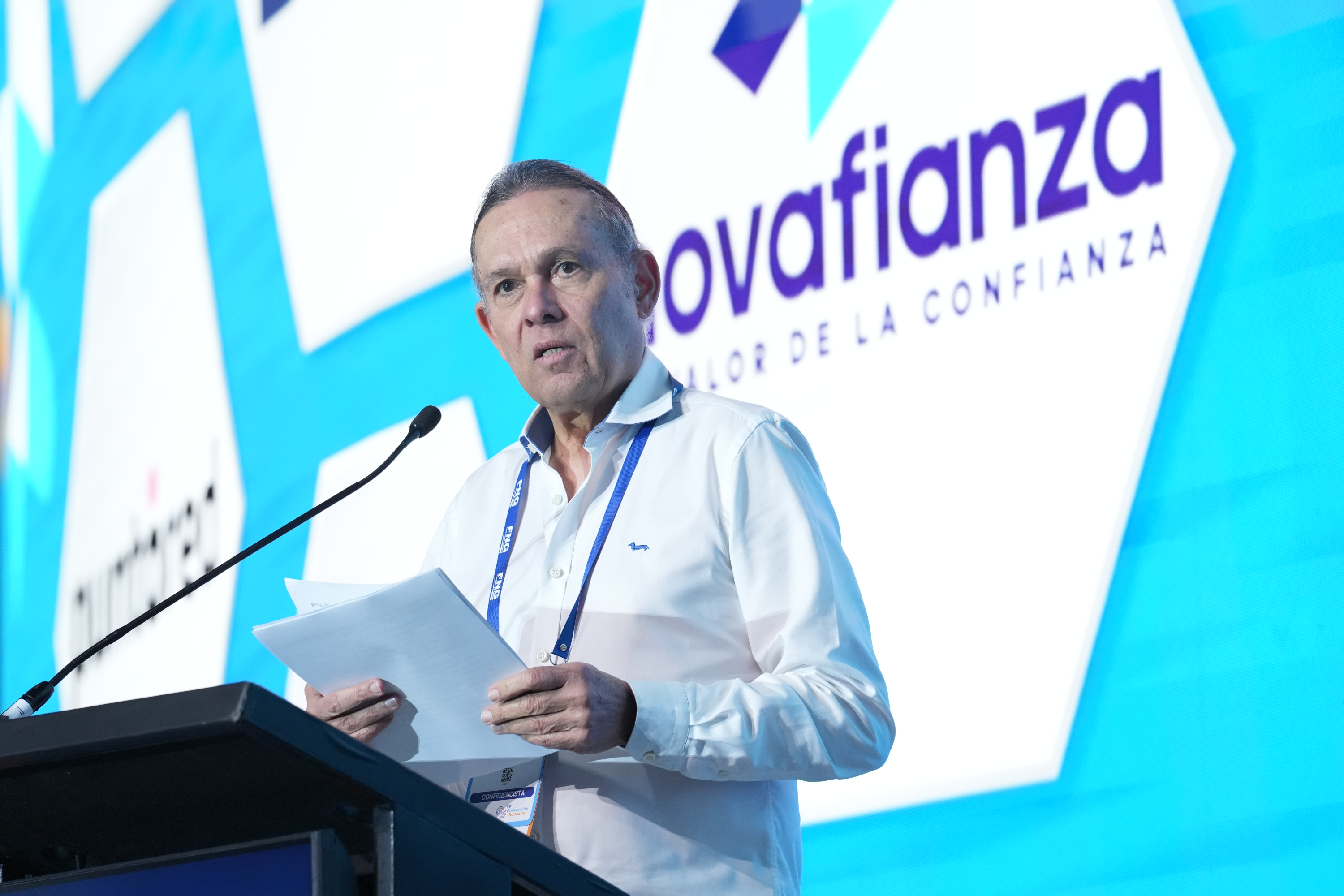
Senate President Efraín Cepeda at Asobancaria. Photo: Asobancaria
Despite the obstacles placed in our way by the National Government, we demonstrated that we are capable of holding international forums of this magnitude, that we have a city that is a source of pride for Colombia and Latin America: a city in full growth, thriving, inclusive, serious, and a job-creating city. And I say we finally achieved it because, on this occasion, the UNWTO prevailed, surely over the wishes of the National Government. Let's remember that we had the Pan American Games, and the Government deliberately failed to pay a few dollars in December that had already been budgeted. Thus, we lost those Pan American Games, and they were relocated to other parts of the world.
Fortunately, we caught the national government off guard, and it's being done. We have prominent figures from many countries around the world here. The best economists who are enjoying the city have highlighted its level of development. Colombia really needs many more of these international showcases, because if we're talking, for example, about investment that creates jobs, these showcases are very important. I believe a lot will come out of this.
The President of the Republic is questioning the electoral process because Thomas Greg is likely to win the election contract. What is your opinion? This is the president's habit of disrespecting the autonomy of public powers. The Registry is a completely independent body, the registrar elected by the presidents of the high courts who make those decisions in law. This has happened in the attacks against the Congress of the Republic when he doesn't like the decisions. It's widespread disrespect. With the same approach, Petro won the presidential and mayoral elections in Bogotá. I do want to say that I have full confidence in the registrar's decision and that we are sure that they will be excellent elections, because I know his qualities.
Do you think this could be a response to the decision the registrar made at the time regarding the referendum? 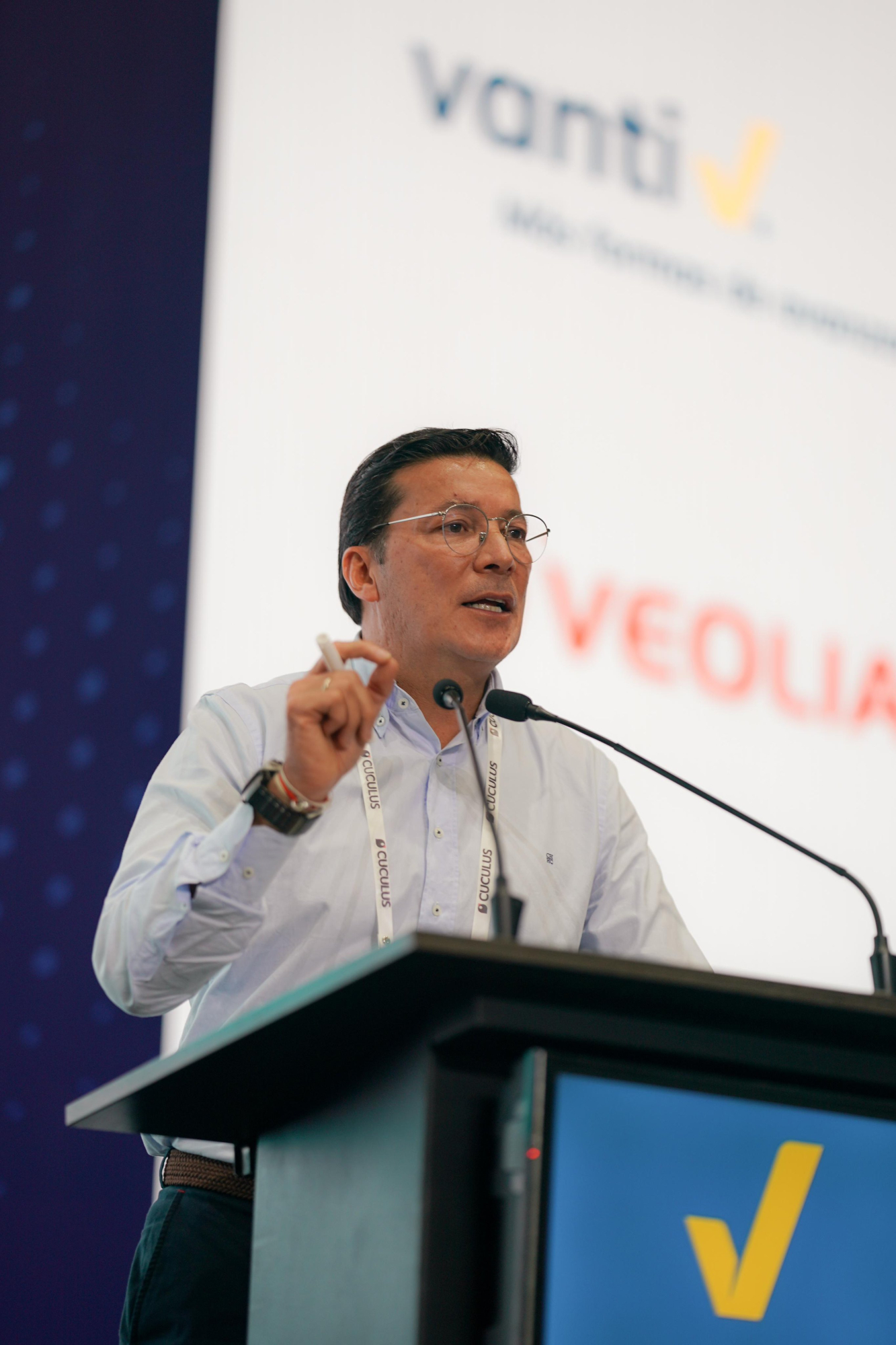
The national registrar, Hernán Penagos. Photo: Registry Office
Well, imagine, how could he react harshly against the registrar if the referendum didn't exist? There's a certification from the Senate of the Republic confirming that it was denied. So, how could the registrar take a step that wasn't his? That idea that the head of state is also the head of all public powers simply doesn't apply. This isn't a reign; it's a social state governed by the rule of law, where democracy is respected and the 1991 Constitution is upheld. The registrar acted in accordance with the law. But the president has that habit, and before that, I want to remind you of something: this isn't the first or second time he's lashed out against the Registry. You yourself just recalled the first episode. Let's remember that, in part, the General Budget of the Nation was sunk in the economic committees when resources were taken from the Registry and transferred to the Ministry of Finance, apparently with the intention of bringing the Registry to its knees and thus being able to directly manage that contract. Who knows for what hidden purposes?
Is this a personal issue between President Petro and Thomas Greg, or is it an attempt to cast a shadow over the electoral process? He hasn't hidden his dislike for that firm, and in fact, three foreign ministers have resigned for that reason. He wanted to force them all not to award the contract to the firm that had won the bid, and they chose to withdraw. Today, President Petro believes that Colombians are left without passports is more important than complying with the law, than fulfilling the results of a bidding process. President Petro cannot be so irresponsible as to tell Colombians that they cannot move, that they cannot leave the country, that they are imprisoned here, as Venezuela began. We urge the National Government, using whatever appropriate mechanism they have, to prevent us from losing our passports and the free movement of Colombians from being, at this moment, truncated by whims.
Is Congress considering any action to prevent Colombians from losing their passports? 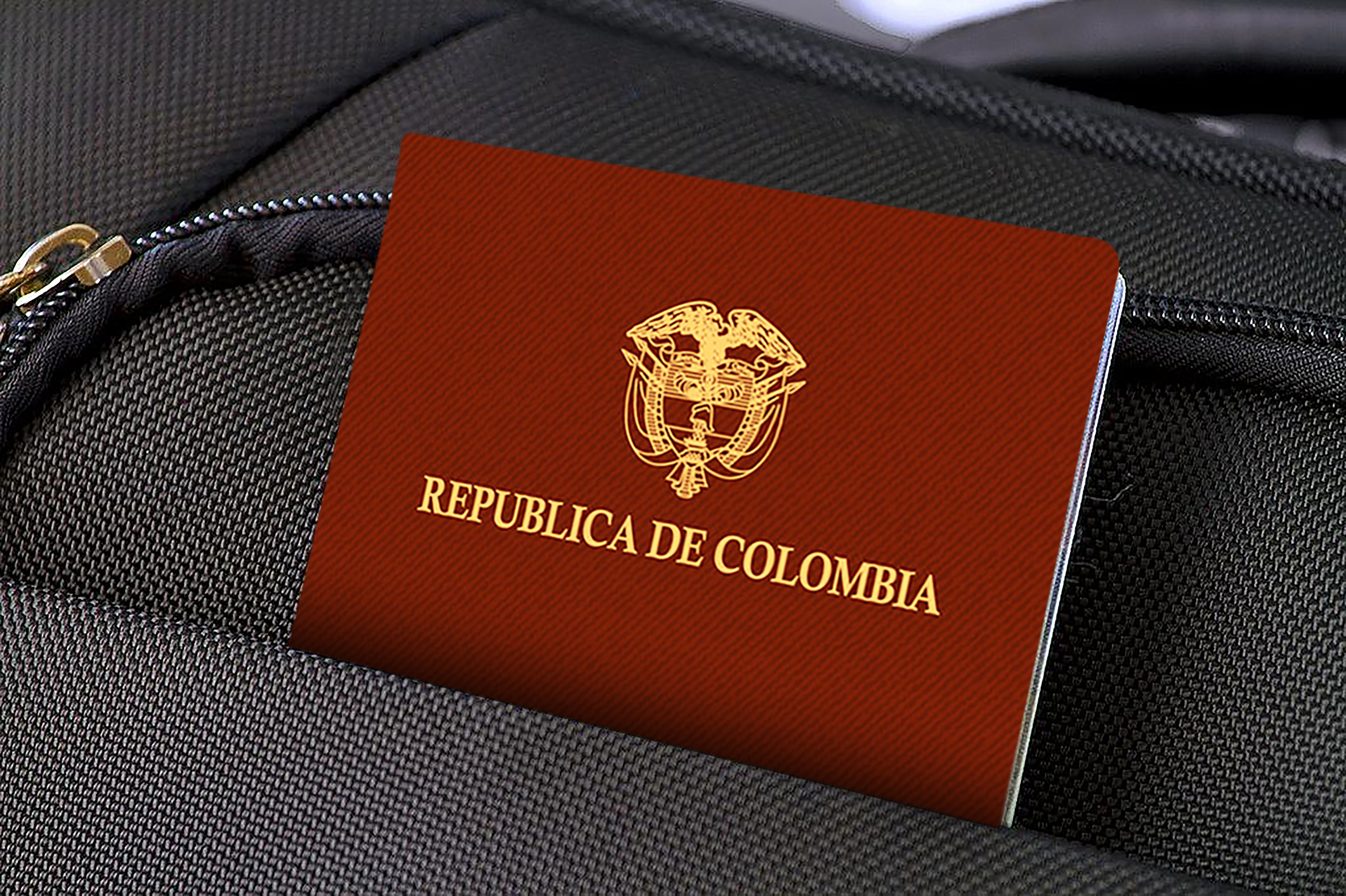
We tell you how to schedule your passport appointment. Photo: iStock
The tool Congress has is political oversight debates, and of course, we've been talking with groups of parliamentarians from different parties to hold one. The goal is for the government to have to explain if it persists in this irresponsible act of leaving Colombians imprisoned in the country , without the possibility of issuing their passports, as happened in Venezuela at the time. I don't know if this strengthening of relations between Colombia and Maduro has even led him to consider leaving us locked up here, without passports.
Now that the issue with the United States is over, what is your opinion of this new episode of tension? The first thing I must point out is the irresponsibility of the National Government. This is the second episode. Let's remember, for example, the tweet at 3:40 a.m., when it returned some planes it had already authorized, which evidently generated a bigger crisis. It has since only generated displays of antipathy toward the United States. And, in addition, there's the irresponsibility of claiming that Secretary of State Marco Rubio was participating in a coup that only exists in his head. This is a democratic country, where we respect democracy. And I want to say one thing: President Petro wasn't elected until August 7th, right? He can't leave even a day before August 7th, but he can't stay even a day after either.
The Supreme Court opened an investigation into alleged irregularities in the referendum vote, and the investigation is ongoing against you. What do you have to say? I see it as a great opportunity to get there with the videos and the statements of the Secretary General, who acts as the notary of the Senate of the Republic. It's a clear issue. Registration can be closed before the 30 minutes are up at any time. Furthermore, no other senator arrived. The Secretary General, who is the one who attests to this, was the one who closed the registration and announced the result, as the procedure indicates: the president says "the registration is closed" and the Secretary announces the result. They're saying that the Secretary changed a vote, etc. That's absolutely false, and that's clear. So, what a great opportunity to be there.
Do you see a future for the constituent ballot? 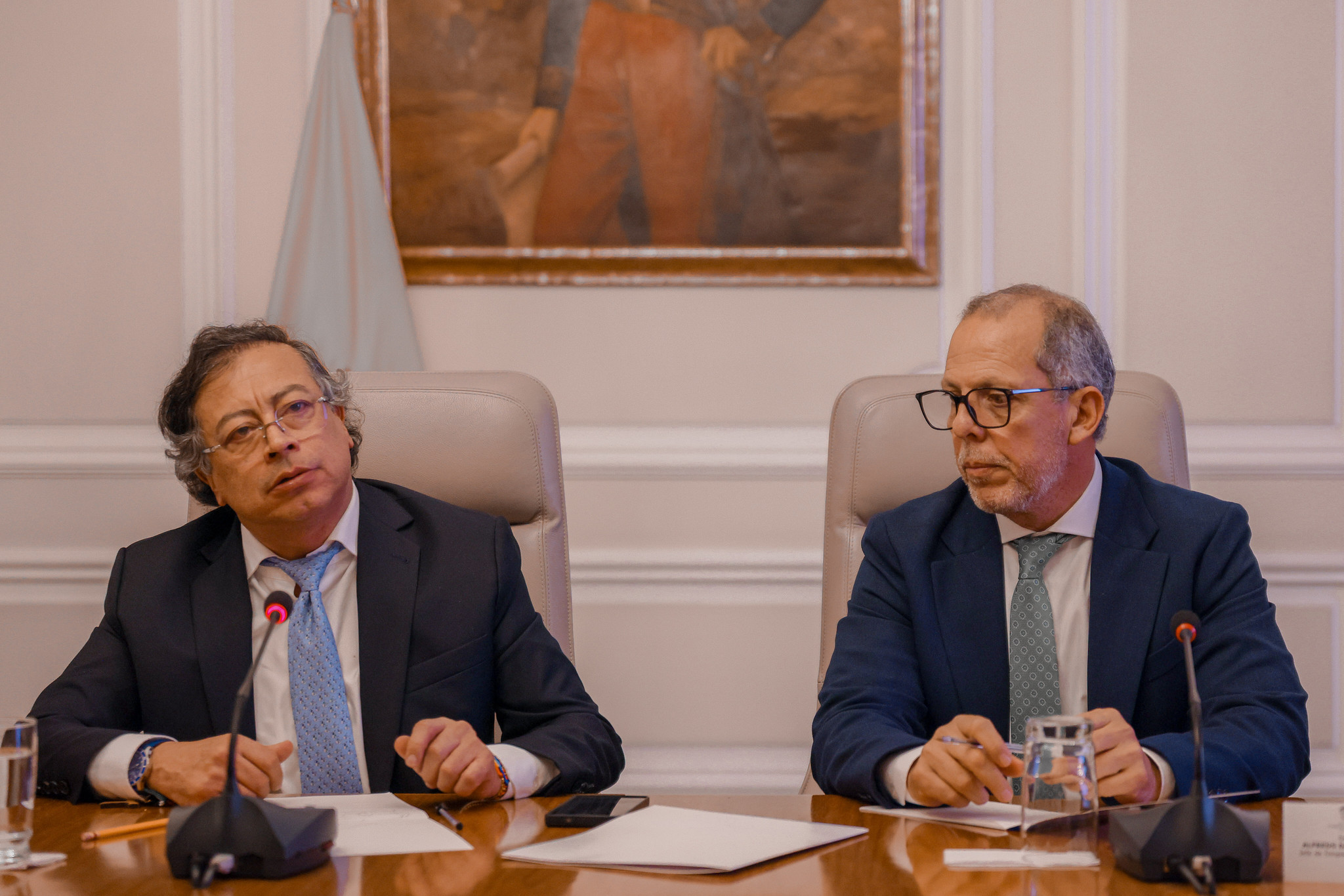
President Gustavo Petro with Alfredo Saade, Chief of Staff. Photo: Presidency
That ballot, initially, came from a citizen team of young people; but now the National Government wants to push it. And, secondly, the previous Constitution didn't have a clear mechanism for how it could be cut. This Constitution, on the other hand, is absolutely clear about the mechanism. They can include all the ballots, and there is no consultation "of the Colombian people" in the Constitution. The consultation must necessarily go through the Constituent Assembly, that is, through a law in the Congress of the Republic. That's what the 1991 Constitution establishes, and the judges, of course, will enforce that mandate. So, that proposal doesn't stand a chance: it's just another smokescreen to hide the government's terrible administration. Do you remember how many ribbons the president of the Republic has cut inaugurating projects for the benefit of Colombians?
How does this legislative closure affect relations with the National Government? Well, starting July 20th, we current congressmen have one more year left, and we're going to be very vigilant to ensure that the Colombian people aren't harmed. We've already been threatened with tax reform. On the one hand, they're flouting the fiscal rule, which allows them to receive between 5 and 6 trillion pesos a year. On the other, service provision orders are increasing meteorically, going from 2023 to 2024 with an additional 10 trillion pesos. These are precisely the resources they're trying to collect today by reaching into Colombians' pockets, while the government spends lavishly and expects the people to pay. Just as they intended, in the referendum, to run the governing party's political campaign for Congress and for the presidency, using 800 billion pesos of Colombian money.
So... The National Government, first, must cut its spending. We will closely examine this tax reform, but, from the outset, I must say that there is no room to reach into the pockets of either employees or business owners, who are currently struggling for survival, especially given the recent passage of a labor reform that increases their contractual burdens. Especially micro-enterprises. I still don't understand how the National Government opposed differential treatment for these micro-enterprises—those with two or three employees, those struggling day to day, families. The Government opposed it. That is the popular economy it claims to protect, but which it ended up harming with the labor reform.
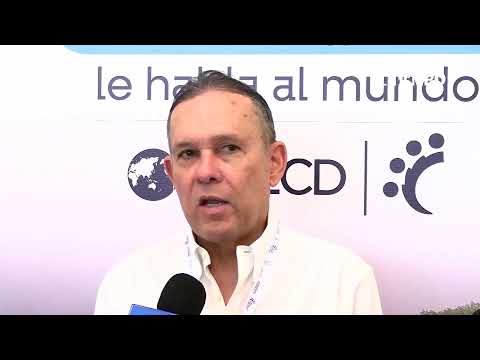
Interview with Efraín Cepeda. Photo:
eltiempo





